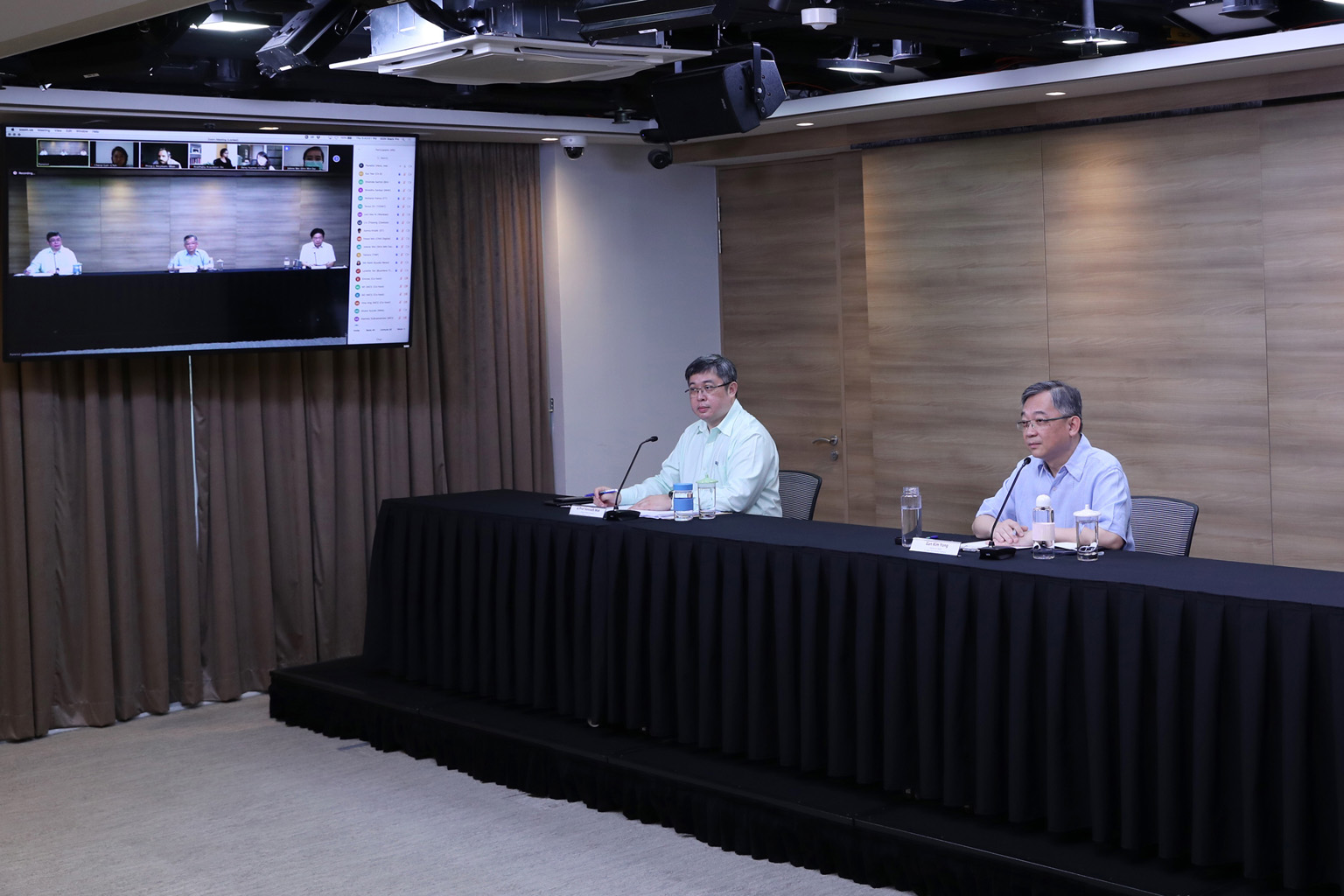Coronavirus: MOH works closely with medical professionals to guide task force
Sign up now: Get ST's newsletters delivered to your inbox

Singapore's top medical authority, the director of medical services at the Health Ministry, Associate Professor Kenneth Mak (far left), seen here with Health Minister Gan Kim Yong at a press conference last week on the Covid-19 pandemic.
PHOTO: MINISTRY OF COMMUNICATIONS AND INFORMATION
The Ministry of Health works closely with medical professionals to guide the multi-ministry task force handling the Covid-19 pandemic, said Singapore's top medical authority, the director of medical services at the MOH.
This includes the management of migrant workers, Associate Professor Kenneth Mak said last night.
His statement came after Singapore Democratic Party chairman Paul Tambyah said that the task force, helmed by Health Minister Gan Kim Yong and National Development Minister Lawrence Wong, did not rely on the advice of medical experts in its work.
Professor Tambyah had also blamed the Ministry of Manpower (MOM) for issuing an advisory in February that asked employers not to get their foreign workers tested and claimed that MOH had been "blindsided".
Prof Mak explained that in February, the MOH was alerted by Changi General Hospital that an employer had brought his workers in, and asked for them to be tested for Covid-19 and for the hospital to certify that the workers were not infected. "This was despite the workers being well," Prof Mak said.
Based on the available scientific evidence at the time, MOH's guidance was that testing should be performed for patients with fever or respiratory symptoms, if there were reasons to suggest a risk of infection, such as recent travel history to Wuhan, China, or if someone was a close contact of a confirmed Covid-19 case.
MOH's assessment was also that the hospital would not be able to certify a person as being free from infection on the basis of a single negative test, as patients could be in the incubation period for the illness, Prof Mak added.
He said: "We were also concerned that such requests of our healthcare institutions could divert critical healthcare resources away from the care and treatment of patients who were unwell."
MOH then sought the MOM's assistance to inform employers of the guidelines, he added.
In a separate joint statement, MOH and MOM said that on Feb 12, they, along with other agencies, had issued an advisory to the industry to advise that there was no need to prevent workers who were residing in the dormitory from working if they were healthy.
But the hospitals informed MOH that employers were still sending healthy workers for testing.
MOH then informed MOM, and a further advisory was sent out on Feb 19 to advise employers not to send their healthy workers for testing, so as to ensure that medical facilities and resources were focused on unwell individuals who needed medical treatment.
The joint statement said: "In the advisories to employers, MOM did not say that employers could not bring their workers for testing. Neither did MOM actively discourage the testing of workers."
What it did say was that workers should not be sent to hospitals unless there was a medical emergency.
If a worker was unwell, employers should send him to a general practitioner so a proper assessment could be made on whether the worker needed to be sent to the hospital.


